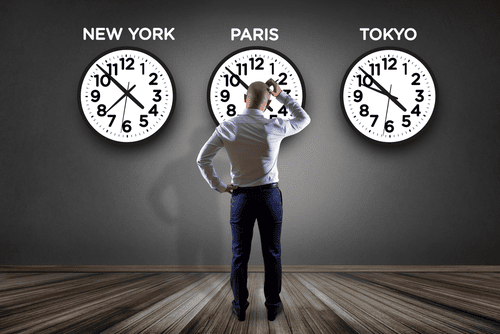How to Manage Jet Lag and Reset Your Internal Clock

Jet lag is a physiological condition resulting from disruptions to the body’s circadian rhythm due to rapid travel across time zones. It is characterized by symptoms such as fatigue, insomnia, and cognitive impairment.
This article aims to provide practical strategies for managing jet lag and resetting the internal clock. By understanding the effects of jet lag, preparing for travel, adjusting sleep schedules, and utilizing natural remedies, individuals can minimize the impact of jet lag and optimize their ability to adapt to new time zones.
Key Takeaways
- Gradually adjust sleep schedules in the days leading up to travel to align the body’s circadian rhythm with the destination’s time zone.
- Exposure to natural light can help reset the internal clock, so spend time outdoors upon arrival.
- Stay hydrated and avoid excessive caffeine and alcohol consumption, as these can disrupt sleep patterns.
- Use herbal supplements for jet lag, such as melatonin, valerian root, and chamomile.
Understanding Jet Lag and Its Effects
Jet lag refers to the disruption of the body’s internal clock due to rapid travel across multiple time zones, leading to various physiological and psychological effects.
The main cause of jet lag is the desynchronization between the body’s internal clock, also known as the circadian rhythm, and the external time cues. Rapid travel across time zones disrupts the regular pattern of light and darkness to which the body is accustomed. This disrupts the secretion of hormones and affects various bodily functions, such as sleep-wake cycles, digestion, and body temperature regulation.
The long-term effects of jet lag can include fatigue, insomnia, decreased cognitive performance, gastrointestinal disturbances, and mood disturbances.
Understanding the causes and long-term effects of jet lag is essential in developing effective strategies to manage and reset the body’s internal clock.
Preparing for Travel and Minimizing Jet Lag
In order to minimize the effects of long-distance travel, it is recommended to make necessary preparations and implement strategies to alleviate the adverse impacts on the body’s circadian rhythm.
Jet lag prevention techniques can be employed to minimize the impact of time zone changes. One technique is to gradually adjust sleep schedules in the days leading up to travel, aligning it with the destination’s time zone.
Exposure to natural light can help reset the internal clock, so spending time outdoors upon arrival can be beneficial. It is also important to stay hydrated and avoid excessive caffeine and alcohol consumption, as these can disrupt sleep patterns.
Additionally, timing meals according to the local time can aid in adjusting the body’s internal clock.
Adjusting Your Sleep Schedule to Reset Your Internal Clock
Gradually adjusting sleep schedules in the days leading up to travel can help align the body’s circadian rhythm with the destination’s time zone. This approach is also applicable for individuals who work shifts and experience disruptions in their natural sleep-wake cycle.
Shift work has been found to have a significant impact on circadian rhythms, leading to sleep disturbances and difficulties in maintaining a regular sleep pattern. To optimize sleep for shift workers, it is recommended to establish a consistent sleep schedule by going to bed and waking up at the same time every day, even on days off.
Creating a sleep-friendly environment, such as keeping the bedroom cool, dark, and quiet, can also enhance sleep quality. Additionally, limiting exposure to bright light and stimulating activities before bed can promote better sleep for shift workers.
Managing Jet Lag Symptoms and Fatigue
Fatigue and symptoms associated with jet lag can be alleviated by implementing strategies that focus on adjusting sleep schedules, managing exposure to light, and optimizing rest and relaxation techniques.
To combat jet lag and fatigue during travel, it is important to pay attention to nutrition and hydration. Proper nutrition and hydration can help maintain energy levels and support the body’s natural rhythms.
Additionally, engaging in regular exercise and physical activity before and during travel can help combat fatigue and improve sleep quality. Exercise can increase alertness and promote better sleep, while physical activity during travel can help reduce stiffness and improve circulation.
Incorporating these strategies into your travel routine can help manage jet lag symptoms and promote overall well-being.
- Proper nutrition and hydration can provide the body with essential nutrients and help maintain energy levels.
- Engaging in regular exercise and physical activity can combat fatigue and improve sleep quality.
- Balancing rest and relaxation techniques can optimize recovery and reduce the impact of jet lag.
Natural Remedies and Strategies to Reset Your Internal Clock
Implementing natural remedies and strategies can help regulate the body’s circadian rhythm and promote synchronization with the local time zone.
One such natural remedy is the use of herbal supplements for jet lag. These supplements, such as melatonin, valerian root, and chamomile, have been found to aid in adjusting the internal clock and reducing the symptoms of jet lag. Melatonin, in particular, is a hormone that helps regulate sleep-wake cycles and can be taken as a supplement to help reset the body’s internal clock.
Another strategy is light therapy, which involves exposure to specific wavelengths of light to help reset the circadian rhythm. This therapy can be done using special light boxes or by spending time outdoors during daylight hours.
Frequently Asked Questions
Are There Any Specific Foods or Drinks That Can Help With Managing Jet Lag Symptoms?
Certain foods and drinks have been suggested to help manage jet lag symptoms. These include foods rich in tryptophan, such as turkey and bananas, as well as herbal teas like chamomile and lavender. However, further research is needed to fully understand their effectiveness.
Is It Recommended to Take Sleep Aids or Medication to Help With Adjusting Your Sleep Schedule?
The use of sleep aids or medication, such as melatonin, to assist in adjusting sleep schedules is a topic of discussion. Further research is needed to determine the safety and efficacy of these interventions.
How Long Does It Typically Take for Your Internal Clock to Fully Reset After Experiencing Jet Lag?
The duration required for a full reset of the internal clock after experiencing jet lag varies among individuals. Exposure to natural light has been shown to aid in resetting the internal clock, whereas natural remedies and supplements may also assist in this process.
Are There Any Specific Exercises or Physical Activities That Can Help Reduce the Effects of Jet Lag?
Exercises and stretching routines have been suggested as potential strategies for reducing the effects of jet lag. These activities may help promote blood circulation, improve alertness, and alleviate muscle stiffness, potentially aiding in the adjustment to new time zones.
Can Using Electronic Devices Such as Smartphones or Tablets During a Flight Worsen Jet Lag Symptoms?
Using electronic devices on long haul flights may worsen jet lag symptoms due to the exposure to blue light, which can disrupt the body’s internal clock. To minimize jet lag symptoms during travel, it is advisable to limit the use of electronic devices and prioritize rest and sleep.









